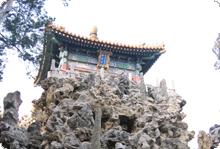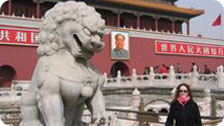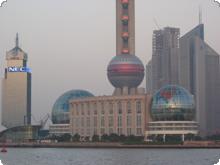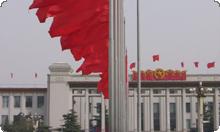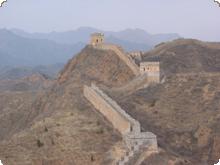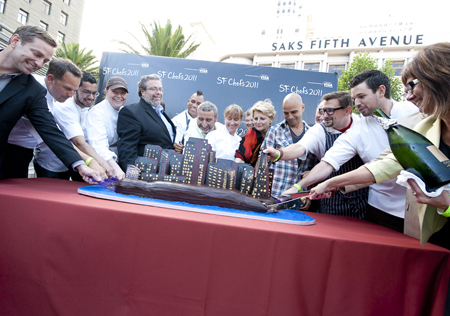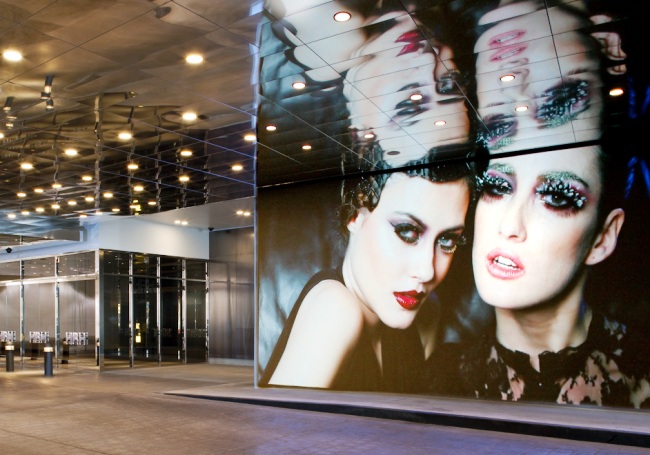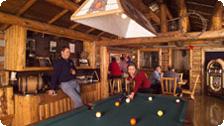Destination Review: China: Shanghaied by Shopping
You can tell a lot about a place by shopping in it. Are the prices high? Are they fixed? Or, like China, is there some magical wiggle room?
Because when you can haggle, the possibilities open up like orange blossoms, and soon shopping becomes something more than just a thing about things. When you can haggle, you can retool value in your own image and use your wits as well as your wallet. That’s why a trip to the marketplace in Shanghai becomes, for me, way more than just a shopping trip.
To go from the world of the fixed to that of the mutable is in some sense moving through the looking glass. If a price is not fixed, are borders? Is identity? Commerce loses its suit and tie and becomes a wavy world of pull and tug. Things have a range of values, and this is something new, but maybe something you sensed all along, that things and prices are fluid, and economics is a scarf blowing in the wind.
Speaking of scarves, so there I stand in a tiny, dusty shop in Yuyuan Market inspecting a mahjong set. The streets are lined with hundreds of identical stalls brimming irresistably with jade, silks, old snuff jars, teacups, and chopstick rests. I’ve been coached on haggling by an American expat friend based in Shanghai who has told me that if I accept the opening price, they’ll be laughing at me all the way to the teahouse. It’s a starting point, a suggestion, an opening to a conversation.
I cut the offered price in half. The old man stammers; he looks at his young salesgirl, who comes rushing over to explain in English that this item is one-of-a-kind. Yeah, I think to myself, until I go next door. I put down my mahjong game, careful not to be enthusiastic about the worn quality of the dragon-painted leather, the neat rows of tiles inside. The old man picks it up and thrusts it back into my hands. It’s the deal of the century! The other shopkeepers would laugh at him for selling it so cheaply.
I put it down and repeat my price. The old man shakes his head, and the young woman brings over a chopstick set. “You want chopsticks? I’ll make you a better price.” It feels ridiculous arguing over a dollar or two, but my friend has cautioned me not to translate from yuan to dollars. That’s not the way to understand this game.
In truth, I love this mahjong set. I don’t know how to play, but mahjong makes me think of my grandmother and cool evenings watching her click tiles with her friends on the kitchen table.
The walk out is the ultimate ultimatum in the haggler’s arsenal. I know that I am supposed to walk out of this store, which goes against everything I’ve been taught about shopping. Shopping is about wanting, about desire and its fulfillment. Salespeople are supposed to be inventory’s pimp. You like this mahjong set? Run your hand across the leather. Now open the case. Only a hundred dollars and you can take it home and have your way with it…
But haggling is more like dating. On this first date, I can’t show my hand. I have to be careful that the object of my desire doesn’t know it’s the object of my desire. In fact, it is my job to get the mahjong set to desire me.
My expatriated friend told me the story of the first day he haggled in China. He is fluent in Mandarin and one day went shopping on the same street that I’m on now. A Chinese man greeted him and welcomed him into his store. My friend found an item he liked, and the games began. Within minutes, the two men were shouting at each other, calling each other dogs. The man screamed at my friend to get out of his store. Soon both men were sweating and had to sit down, exhausted. The man handed the item to my friend, asking him to take it as a gift. “You were fantastic. Come back to my shop anytime!”
So maybe shopping in China is a ménage-à-trois, an attraction between two complicated by the presence of a third. Where prices are fixed, you commit yourself to the item alone. But haggling involves the shopkeeper too. Even though I don’t know him and will never see him again, I want to do this right and I want the shopkeeper’s respect and approval. Which is why I walk out of the store now. Will the man follow me? What if he calls my bluff? Because I’m bluffing like mad- I want that mahjong set enough to walk back in there like a fool for love if he doesn’t come after me.
I am surprised and relieved when the shopkeeper comes running after me, tugging on my arm. “All right!” He throws up his hands. And so I get my mahjong set, and a weird sense of pride that not only have I bought a game, I have won one as well.
Happy Chinese New Year!
Southwest Airlines Chinese New Year Parade
Saturday, February 19th, 5:30 – 8 p.m., rain or shine.
2nd and Market Streets, San Francisco.
Parade map available at www.chineseparade.com.
Stephanie’s China Guide:
SHANGHAI
Places to Stay:
The Portman Ritz Carlton for the ultimate in luxury.
The Peace Hotel, a legendary and historic edifice right on the Bund. If you like jazz, the resident band at the Hotel has been playing there for decades, and once you take a look at them, you’ll know I’m not lying! They are the original guys!
The Grand Hyatt, one of the world’s tallest building with sumptuous views of the Bund from the danceclub up top. Across the River from the Peace Hotel in Pudong.
Things To Do:
The Shanghai Museum– can I double star it? Underline it? Please please please don’t miss this amazing museum. Four floors dedicated to jade, bronzes, calligraphy, and the costumes of China’s ethnic minorities, to name just a few of the vast treasures.
*Try to get a Foot Massage on Nanjing Road.
*See the French Concession Area. Boonna is a cool café there.
*Eat dinner at Face and hang out at the bar downstairs
*Eat at Mao’s.
(and you’re saying, Stephanie, an address for these restaurants would be helpful! And I’m all, hey I can’t read the cards I collected from these places! Ask your hotel’s friendly concierge?)
*Take a tour of the history of Jews in Shanghai www.chinajewish.org.
*Peek in the lobby of the old HSBC Bank building on the Bund.
Day Tripping:
Zhouzhuang– China’s answer to Venice! A charming canal town outside of Shanghai, you can take a gondola ride through and watch life bustle on the banks.
BEIJING
Places to Stay:
Novotel– it’s like basecamp for international tourists off to see Tiananmen Square and the Forbidden City and the Great Wall.
Beijing Hotel– an old dowager, posh and perfectly fabulous.
Places to See:
The Forbidden City and Tiananmen Square
My favorite part of the Forbidden City was the Emperor’s gardens at the very end of the tour. Make sure you leave time for them. Also, afterwards, do cross the street and climb the hill so that you can get a birdseye view of the Forbidden City. Oh, and if you take the audio tour, none other than Roger Moore will be whispering into your ear how fabulous everything is.
A word on the Great Wall:
There are many places to walk it, but if you’re really up for a challenge, then the hike between the crumbling points of Jinshangling and Simatai is for you. Winds howl across the barren desert far from tourist hordes, and you can almost hear ancient foreign armies clanging at China’s door.
I kid you not, Beijing has a thriving Nightlife area, the Sanlitun.
Bar Blu
Cloud Nine
Centro is in the lobby of Shangri-La’s Kerry Centre Hotel, 1 Guanghua Road.
Suzie Wong, West Gate of Chaoyang Park, is a super expat chic spot.
HONG KONG
Do visit the bathrooms at Felix Restaurant in the Peninsula Hotel!
Discover more from Tango Diva
Subscribe to get the latest posts sent to your email.
